During the Christmas season we are confronted by two texts that not only speak to, but seem to arise out of, the grief that has swept this country in the wake of the mass murder of children and care-giving women in Newtown.
Thus says Yahweh:
A voice is heard in Ramah,
lamentation and bitter weeping.
Rachel is weeping for her children;
she refuses to be comforted for her children,
because they are no more.
Thus says Yahweh:
Keep your voice from weeping,
and your eyes from tears;
for there is a reward for your work;
they shall come back from the land of the enemy.
There is hope for your future, says Yahweh:
your children shall come back to their own country.
Jeremiah 31:15-17
When Herod saw that he had been tricked by the wise men, he was infuriated, and he sent and killed all the children in and around Bethlehem who were two years old or under, according to the time that he had learned from the wise men. Then was fulfilled what had been spoken through the prophet Jeremiah:
“A voice was heard in Ramah,
wailing and loud lamentation,
Rachel weeping for her children;
she refused to be consoled, because they are no more.”
Matthew 2:16-18
What will it take for us to “come back to our own country”? What practical steps should we take and what vision should guide us? These questions have swept like a howling ghost through the darkened chambers of our public life. The steps we need to take are relatively clear to most of us.
First, we must open our eyes. We must recognize that the United States, with its 32,000 gun deaths every year, is by far the most violent “developed” country in the world. As the world’s largest producer of weapons, we are in the grip of an armaments industry driven by profit and expansion on the basis of people’s fear and aggressive instincts.
We must also recognize that this is a political problem, not a Constitutional one. For two hundred years our courts held that the “right to keep and bear arms” of the Second Amendment to the Constitution was governed by the needs for “well regulated” state militias. By a five-to-four decision the Supreme Court ruled in 2008 (District of Columbia v. Heller) that it applied to an individual’s right to keep a firearm in his or her house for self-defense. The Court, with Justice Scalia writing, left wide room to regulate all aspects of gun commerce, possession, and use, including the sale of military-style weapons. The Second Amendment is not the bastion of wide-open gun use that some people believe it is. It actually spells out the wide range of ways that government can control and regulate firearms.
Second, we need to come to terms with the violence in our media, videogames, and casual language. Ratings for films need to treat violence like pornography. We can lift up higher standards of decency, mutual respect, and civility in all areas of our life so that people seek avenues of civil persuasion rather than the dark alleys of violence.
Third, we need to hold gun owners to the highest standards of accountability, whether in the purchase, storage, or use of firearms. Hunting and gun sportsmanship is a privilege granted by our Constitutional order. It demands the kind of skill and responsibility we expect of the police and soldiers trained in their proper use. And, of course, we need to keep guns out of the hands of children, people with a record of violent action, and the mentally or emotionally disturbed.
The last category poses difficult challenges. While we do need to spend more time, money and attention on the many psychological and mental illnesses that afflict large numbers of people, it is less clear to me, except in obvious cases like the massacre at Virginia Tech, how we can identify in advance all those people who are too unstable to be allowed to have a gun. This is too complex an issue to be solved simply by legal and bureaucratic action.
Much of our debate is shaped by the simple desire to reduce the incidence of death and injury. However, this approach lacks a wider vision that will help us “come back to our own country.” Many people, such as Jeffrey Goldberg, in the latest Atlantic (“The Case for More Guns (And More Gun Control),” December 2012) argue that we need more guns to protect ourselves from the crazy people with guns. However, this is the logic of Somalia and every failed state in the world. It sees our life together as a life of isolated, fearful individuals in a war of all against all. It is not a social vision at all.
Rather, we must be guided by our original vision of creating a republic where every person can engage in the public life of civil persuasion within a Constitutional order of law. The problem, as Firmin Debrabander has pointed out (“The Freedom of an Armed Society, NYT, December 16, 2012), is that the presence of guns stifles freedom, because it instills fear, robbing people of the will to engage in open, often raucous, debate. Moreover, it isolates us in mistrust, making the ordinary interactions of commerce, education, worship, and politics difficult if not impossible. The implicit threat of violence entailed by guns in the public square creates an inequality of force that contradicts democratic cooperation to act for the common good. Our freedom lies not in guns and intimidation but in the non-violent participation of citizens who wish to enjoy the full humanity arising in a common life of trust together.
The two visions are diametrically opposed. The culture of guns destroys democracy. It is the pathway to oppression by the few who control the guns, leading to a spiral of violence. The pathway back to a country seeking a democratic public life is one that reduces the fear of violence with a love for a community of cooperation in the precious land we share. What is at stake in the present debate is that we are seeking not merely to protect individual lives. We are seeking to reclaim our public life from the violent language and deeds that are robbing us of the precious democracy we have sacrificed so much to enjoy.
I close with a powerful poem written by my poet friend in South Africa, Isobel DeGruchy, whose ties to this country and her own land pulled her into these words:
For Rachel’s Children
Rachel is weeping for her children;
She refuses to be comforted for her children,
because they are no more.
There is hope for your future, says the Lord.
Jeremiah 31: 15, 17
For all of Rachel’s Children, weep, oh weep,
Because we see in shock they are no more.
There is no comfort for our grief is deep.
This time a gunman came and with one sweep
Of bullets twenty children hit the floor.
For all of Rachel’s Children, weep, oh weep.
Some children find their life is held so cheap,
They’re bought and sold as goods are in a store.
There is no comfort for their grief is deep.
Some, day by day, go hungry off to bed,
Whole households run by youngsters not much more
Than children, just like Rachel’s, weep, oh weep.
The education that should help them leap
Up to a better life is bad at core;
There is no comfort for our grief is deep.
God’s promised hope – do we believe he’ll keep
His word and countless blessings on us pour?
For all of Rachel’s children, weep, oh weep;
We hope for comfort, yet our grief is deep.
Isobel DeGruchy

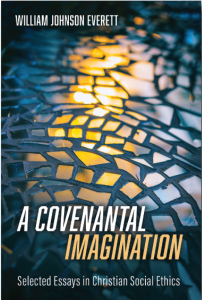
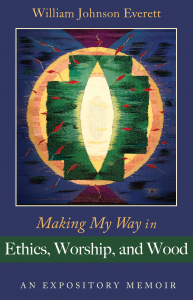
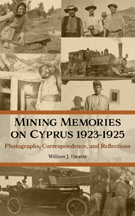

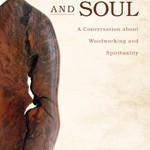
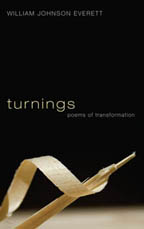
 Red Clay, Blood River
Red Clay, Blood River
Thank you for helping to express our grief.
I have to believe something positive will come out of this tragedy, like a change in the availability of assault weapons but even more, a greater awareness of, and funding for mental health issues. Otherwise, it is unbearable.
Bill:
Thanks for this thoughtful, comprehensive, and helpful analysis of our gun violence problems.
Ken Johnson